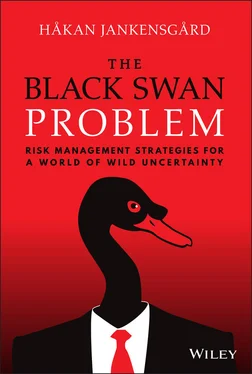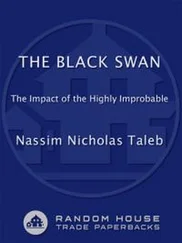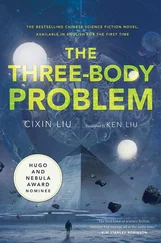Considering the above, one is inclined to agree with Taleb when he remarks that ‘… it is as if we have the wrong user's manual' (Taleb, 2007, prologue xxii) for navigating successfully in a world of wild uncertainty. We crave simple but coherent narratives. We value elegant theories and become committed to them. We think we are special and that the world around us is benign. We are equipped with a mind that was created for an existence with much fewer variables and more direct cause‐and‐effect mechanisms. Reflecting deeply about interconnected systems was not key to survival in our evolutionary past. In a somewhat shocking passage, Taleb says that ‘our minds do not seem made to think and introspect’ because, historically speaking, it has been ‘a great waste of energy’ (ibid.).
In fact, information, which potentially helps us rise above sucker‐status, is costly to acquire and process. Imagine that I bring up the possibility of nuclear terror affecting a major US city. Such a scenario involves hundreds of thousands of dead and an upheaval of life as we knew it, before even considering what the countermeasures might be. Any firm with operations in the US is likely to be greatly affected by this calamity. Now what is your gut reaction to this proposed topic of conversation? In all likelihood, your kneejerk reaction is to immediately try to shut it down. The sheer unpleasantness of the topic makes us not want to go there, even for a brief moment of time. It is too much to take in, and frankly too boring, so, to save us the mental energy, we are perfectly willing to resort to the handy tactic of denial.
As problems, extreme and abstract possibilities, remote from everyday practicalities, are not inspiring enough to energize us. They are out of sight and therefore out of mind. We are unable to maintain a focus on them for long enough. Our thoughts will gravitate towards something more tangible, some action that yields a more gratifying sense of accomplishment here and now. It often takes a herculean effort to process remote possibilities and we are rarely in the mood for it. They are therefore not necessarily ‘unknown unknowns’, rather they can be thought of as ‘unknown knowables’. Unknown knowables is meant to convey that it is within our reach to form an understanding of the possibility and most of its consequence, but we fail to do so because of our laziness or disinterest. That makes it, for practical purposes, a Black Swan, at par with the unknown unknowns. At least to some, that is, because others might be prepared to take up the challenge.
THE RELATIVITY OF BLACK SWANS
Earlier in this chapter, we noted that the popular view of Black Swans is that they strike quickly and unexpectedly. Except that there is nothing in the Black Swan framework that says it has to be sudden or even happen within a reasonably short time‐period, like a few months. In fact, many of the examples discussed in Taleb's book are episodes that may seem like distinct and well‐delineated events in a history book, but were prolonged affairs with a long lead‐up. World Wars I and II are both in this category. The rise of Christianity is mentioned as another Black Swan event. A dominant Christianity would no doubt have appeared like an absurd proposition to someone living around the time of the birth of Jesus. Its consequences were certainly immense, so it meets this criterion too. It also took centuries to gain a foothold and start making its impact felt. The rise of the internet and social media were mentioned earlier as examples of technology‐driven Black Swans. They too emerged gradually over many years, infiltrating our lives one small step after the other. Therefore, from the viewpoint of a decision‐maker in the real world (which is the perspective that Taleb urges us to take) they were not instantaneous.
The fact that monumental changes can take a long time in gestation adds to the relativity of Black Swans. Those that are less wedded to specific ideas and more open to rewriting the story they tell themselves come around quicker to change. This introduces a strategic dimension to Black Swans, massive agents of change as they are. The observation to make is that when others refuse or are unable to see a changing reality, the value of being a non‐conformist increases. The sucker status of those that you interact with competitively is a variable of interest, a theme we will come back to many times in this book.
Apart from the biases that shape our thinking, the relativity of Black Swans is also a matter of information and knowledge in the more traditional sense. The more we invest in high‐quality information and capabilities for processing it, the wider our frame of reference will be, and the fewer Black Swans we will experience. Take Donald Trump's ascendancy to president as an example, which was a Black Swan to those who kept discounting him heavily. As his candidacy was first announced, many took it as a joke, and went on to seriously underestimate him throughout the race. The general assumption was that America would somehow come to its senses and see him for what he was, which, in their view, included being wholly unfit for office. However, those who had had their ears on the tracks and picked up on the dark undercurrents of American society knew better. In their eyes, the arrival of Trump was the culmination of a process that had been long in coming. They had realized that a substantial number of people had come to resent the system and thought it was rigged against them, feeling that nobody stood up for them except Trump. Out of spite, they were prepared to vote for someone who promised to shake the system up. This undercurrent unleashed the mindboggling Trump presidency, which culminated in the Capitol Hill insurrection. What a Black Swan, to all those who had not noticed the sentiment that had developed among broad layers of the US population.
For students of Swanology, the #1222 episode of the Joe Rogan Experience podcast is a gem. It illuminates several of the mechanisms involved in turning some (most) of us into suckers, and highlights the enormous differences in expectations that can arise even when we are looking at the same set of facts . The topic of conversation is about the mother of all Black Swans, the wiping away of the existing world order by way of an asteroid impact. According to Rogan's guests, Graham Hancock and Randall Carlson, there is compelling evidence to suggest that there have been repeated cosmic impacts during the 180,000 years or so that anatomically modern humans have existed. Besides transforming the geography of the Earth, these events may have erased civilizations existing at the time so thoroughly that no archaeological evidence of them can be found today. Hancock and Carlson, labelled ‘catastrophists’ by some, argue that human civilization did not begin to stir around 12,000 years ago, which is the conventional view, but that it was rebooted following a near‐complete destruction caused by an asteroid that smashed into Earth a number of centuries before. The asteroid impact they refer to was followed by extreme shifts in the global climate. One consequence was a near‐instantaneous melting of the ice sheets and the flooding that resulted completely overwhelmed humans living at the time. (Fascinatingly, if true, this could explain the enduring myths handed down to us from deep history regarding an epic flooding.)
Mainstream science, however, adheres to a view referred to as ‘gradualism’, which holds that we can extrapolate backward in time from processes we are able to observe today. In this view, everything we see in the landscapes today are the result of gradual processes that have been going on for eons. As a result of the vested interest in this narrative by academics who have built a career on it, they have put up quite a resistance to the ideas put forth by Hancock and Carlson. This resistance takes us into Black Swan territory with respect to the civilization‐destroying potential of cosmic impact. Below are some excerpts from their conversation. We do not have to take any sides with respect to the facts being discussed to enjoy the insights it brings about the Black Swan formation process.
Читать дальше












